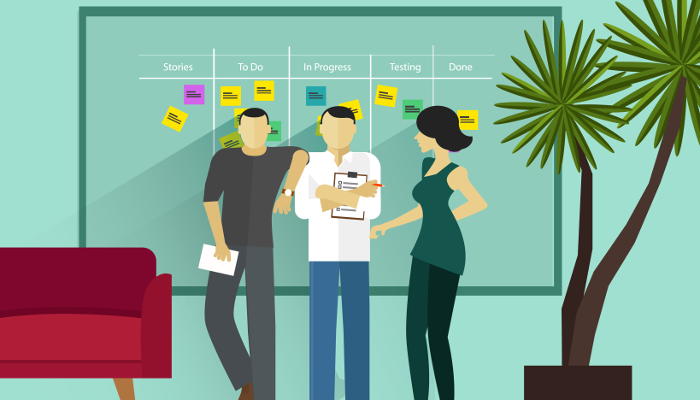I recently had a really great conversation with a fellow co-worker about how and why companies struggle with the adoption of agile methodologies like Scrum. It just so happened that he had come from a very large company where someone had undertaken something unheard of — they attempted to objectively measure the effect that Scrum […]
Build for the Novice, Enable the Expert
I’ve been working on B2B solutions for a very long time (dating almost all the way back to the turn of the millennia), and in that time I’ve come to realize that far too many applications try to be everything to everyone, and as a result really wind up serving nobody at all. You can […]
Five MAJOR Product Management Mistakes
There are a lot of different hats we wear as Product Managers, which means that there are a great many opportunities for us to do the right thing, at the right time, for the right people. But the inverse of that is also true — by virtue of wearing so many hats, there are a […]
Constructive Conflict
There are a great many company cultures in the world that go out of their way to avoid conflict of any kind. And, while the intent is good — nobody wants to work in a combative workplace — the common practice of lumping all conflict together into a single bucket and trying to toss it […]
10 Questions: Jay Stansell of the Product Coalition
At some point in my meanderings online, I heard tell of a Slack channel that had been set up for Product Managers to engage with each other and discuss topics of concern to those in the profession. And, being the Clever PM that I am, I had no choice but to check it out — […]
Agile Transitions – Managing Expectations
We live in a day and age where there’s a ton of information and mis-information out there about pretty much every topic imaginable, and Agile development is certainly not immune to this phenomenon. In fact, anyone who looks for help in pushing through an Agile transformation in their organization is immediately confronted with a vast […]
The Many Hats of the Product Manager
Sometimes an idea just strikes me out of the blue and sounds interesting enough to sit down and write a little bit about. This is one of those posts, spurred on by a discussion I had today with a newly-hired Product Manager with almost as much experience as me. As we were talking about our […]
Why Does Agility Matter?
We tend to take the fact that agility is important as a given, when the reality is that not everyone in the business world has reached the same conclusion. Thus, it’s important sometimes to take a step back and examine why agility actually matters, so that when we’re faced with people who aren’t as convinced as […]
Stakeholders: Overcoming Passive Resistance
A recurring challenge that many Product Managers face is coping with stakeholders who attempt to block our efforts, either covertly or overtly. Sometimes these situations arise due to simple miscommunication, but other times they’re power plays, the results of internal politics, or even caused by grudges held from previous slights — real or imagined. To […]
How to “Level Up” Your Product Management Skillset
A common theme in online discussions and forums around Product Management lies in how to level up our skills and be a better Product Manager. While there are a lot of different options available, just as there are as many different aspects of Product Management to focus on, there are some very specific areas that […]
How Accepting Uncertainty Drives Successful Teams
If you’ve been reading this blog for awhile, you’ve probably noticed that accepting uncertainty is a a recurring theme when it comes to Agile and agility. While it’s never stated outright as a “value” in either the Agile Manifesto or the Twelve Principles of Agile, the concept itself underlies many of the points made in […]
Why “Scrumbut” Shouldn’t Be a Bad Word
There’s a term that gets floated around the Agile world by what I like to call the “textbook Scrummers” that really bugs the crap out of me, so much that I decided to write an article about the concept, and why I think it’s a wrong-headed, anti-agile concept. The concept is known as “ScrumBut” (a […]











